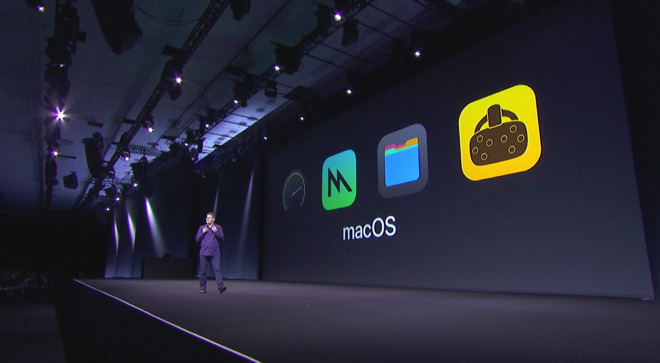Come January 2018, new apps submitted to the Mac App Store must include 64-bit support as Apple progresses away from less efficient 32-bit code, while existing apps have until June of next year to include the same.
Apple reminded developers of the coming change in policy in an announcement posted to its Developer website on Friday, saying the 64-bit requirement applies to both new submissions and updates to existing titles distributed through the Mac App Store.
Specifically, new apps submitted to the Mac App Store must support 64-bit starting January 2018. The rule change will apply to developers who already market apps through Apple's online store starting June 2018, at which time app updates are to be subjected to the same scrutiny.
Further, Apple urges developers who distribute apps outside the official Mac App Store to push out 64-bit binaries so users can continue to run those products on future versions of macOS. As the company noted in previous developer updates, macOS High Sierra is the last macOS release to support 32-bit apps "without compromise."
Apple first announced it would restrict 32-bit apps from running on macOS at the Worldwide Developers Conference in June. During its "Platform State of the Union," Apple said it planned to "aggressively" warn users about running 32-bit apps in macOS versions after High Sierra.
Apple migrated its entire Mac hardware lineup to 64-bit Intel processors in 2006, save for the Mac mini, which switched over to 64-bit CPUs in 2007.
The company recently completed a — more aggressive — transition to 64-bit for its iOS mobile operating system. Just two years after kicking off a campaign to switch to 64-bit, Apple's iOS 11 no longer supports legacy 32-bit apps.
 AppleInsider Staff
AppleInsider Staff








 Sponsored Content
Sponsored Content
 Wesley Hilliard
Wesley Hilliard

 Andrew Orr
Andrew Orr
 Amber Neely
Amber Neely

 William Gallagher
William Gallagher








6 Comments
Headline is a bit misleading. It's not that 32-bit code is less efficient, aside from some small optimizations and memory-hungry apps, but that loading both 32- and 64-bit libraries at the same time is less optimal.
Actually x86 32-bit code is less efficient. 64-bit x64 code can take advantage of an instruction set with many operations not present in legacy x86 instruction set. But would a user ever notice - unlikely. Any computationally demanding code would have been 64-bit for a long time.
And Intel were rumoured to have an new uArch that is based entirely on x86-64 coming in 2020.
Good this should clean out a lot of guff from the Apple Store. :)